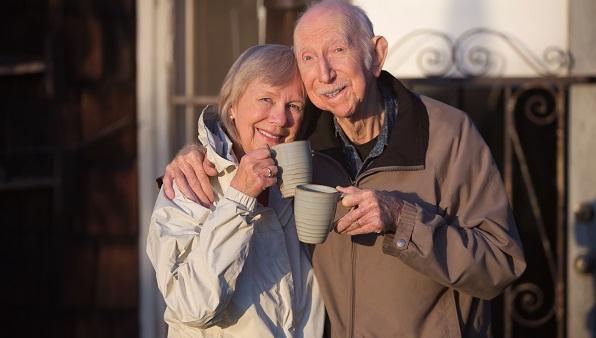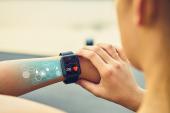Small CRAVE Trial Reassures on Caffeine Safety in Rhythm Disorders
Drinking coffee was tied to less supraventricular tachycardia, more premature ventricular contractions, and less sleep, but more exercise.

While caffeine can increase the likelihood of some abnormal heart rhythm findings and interfere with sleep, it also seems to help people fit more physical activity into their day, hint findings from the small, randomized CRAVE trial.
“These data add to the growing evidence that those with supraventricular tachycardias or atrial fibrillation . . . or at risk for those diseases, should not necessarily avoid drinking coffee,” Gregory Marcus, MD (University of California, San Francisco), said in a press conference with media.
CRAVE included 100 healthy young volunteers with no prior arrhythmias or CV disease who for 2 weeks were instructed to either avoid or consume caffeine in a rotation that changed daily. Compliance to the randomization was tracked, as were activity levels, heart rhythm, and glucose levels. Drinking coffee did not lead to an increase atrial arrhythmias, but there was an increase in premature ventricular contractions (PVCs) and people walked about 1,000 steps more on the days when they were allowed coffee versus not (P = 0.0010).
Marcus reported the results in a late-breaking session today at the virtual American Heart Association (AHA) 2021 Scientific Sessions.
The new study adds to prior research by Marcus and colleagues, which found that a median consumption of two cups of coffee per day was associated with lower risks of AF and supraventricular and ventricular tachycardia in the large UK Biobank analysis. While much of the literature supports the idea that caffeine has a relatively benign effect on heart rhythm, there are outliers, such as a small case-control study of patients with supraventricular tachycardia that suggested caffeine could interfere with the efficacy of adenosine treatment.
“There haven't been a lot of data, even though clinically we talk a lot about coffee affecting premature ventricular contractions. That data has been very conflicting, so we hope that this will inform that,” Marcus told the media, adding that coffee also has been associated in very large studies with reductions in mortality and diabetes.
Elaine M. Hylek, MD, MPH (Boston University School of Medicine, MA), who moderated the press briefing, said she was “somewhat reassured” that caffeine didn't appear to induce any type of atrial arrhythmias. Hylek added that although the study is small, the observation of a relationship between drinking coffee and engaging in more physical activity may very well translate into better CV health, weight, blood pressure, and other health-related markers.
Rhythm Impact and Sleep Disturbance
During the 2 weeks of CRAVE, the participants, who were all regular coffee drinkers, would receive a text to either consume caffeine for 1 day and avoid caffeine the following day, or avoid caffeine for 1 day and consume caffeine the following day.
To TCTMD, Marcus said one of the biggest obstacles to enrolling participants in the trial was finding people who were willing to go forgo daily coffee. While the randomization was set up in the on-off, off-on format “so we could assure our participants they would never go more than 2 days without coffee,” he noted that it still wasn’t enough to convince some people. More than 50% of participants were female, and the average age was 38. At baseline, approximately 30% of participants reported drinking at least one cup of coffee per day, with 21% reporting two to three cups per day.
CRAVE participants wore a wrist-worn fitness device (Fitbit) to track sleep and step counts, a continuous ECG monitor, and a glucose monitor, and underwent DNA analysis to assess genetic caffeine metabolism. Individuals recorded coffee consumption with the press of a button and that was followed up the next day with questions from the investigators about their coffee habits. A “coffee drink” was defined as a standard cup of coffee or one shot of espresso. Marcus said the participants were reimbursed for all their coffee drinks and, with participants’ permission, were geolocated and geofenced to assess visits to or near coffee shops.
At least one supraventricular tachycardia episode and one ventricular tachycardia episode were observed during the study. There were no differences between drinking coffee and not drinking coffee on the incidence of premature atrial contractions (RR 1.09; 95% CI 0.98-1.20). Drinking more coffee was associated with fewer episodes of supraventricular tachycardia (RR 0.84; 95% CI 0.69-1.03), however, and with more premature ventricular contractions (HR 1.54; 95% CI 1.19-2.00).
Coffee also had a clear impact on sleep habits. On coffee days, participants got 36 fewer minutes of sleep per night than on noncoffee days (P < 0.001). There also was a further loss of sleep associated with greater number of coffee drinks consumed. No impact of coffee was seen on daily average glucose levels. By DNA analysis, slow caffeine metabolizers were more likely than fast metabolizers to be affected by sleep deprivation (P < 0.001).
Discussant Sana Al-Khatib, MD (Duke University Medical Center, Durham, NC), said coffee consumption is a frequent question among patients, but that given the conflicting data so far, it’s not clear what to tell them.
And although Al-Khatib congratulated Marcus and colleagues for “a well-conducted and informative trial,” she noted that the young, healthy patient population in CRAVE does not represent those typically seen in practice for whom clinicians might be concerned about caffeine consumption affecting heart rhythm.
“Given the small sample size and the surrogate endpoints that they looked at, I think it's going to be critically important for future researchers to try to validate these results and look at harder endpoints that you follow over time,” Al-Khatib concluded.
She further added context to the heart rhythm findings by noting that while premature atrial contractions can trigger AF, “they don't do so in every patient, and PVCs have been shown to be associated with increased mortality, as well as worsened cardiovascular outcomes, but that's mostly in patients with structural heart disease.”
While concluding that the genetic data in the analysis was “innovative,” Al-Khatib said another future goal should be to ascertain whether the coffee-related physical activity and sleep findings translate into any major effects on clinical outcomes.
L.A. McKeown is a Senior Medical Journalist for TCTMD, the Section Editor of CV Team Forum, and Senior Medical…
Read Full BioSources
Marcus GM. The coffee and real-time atrial and ventricular ectopy (CRAVE) trial. Presented at: AHA 2021. November 14, 2021.
Disclosures
- Marcus reports research support from Baylis, Medtronic, and Eight Sleep; consulting for Johnson & Johnson and InCarda Therapeutics; and holding equity in InCarda Therapeutics.




Comments